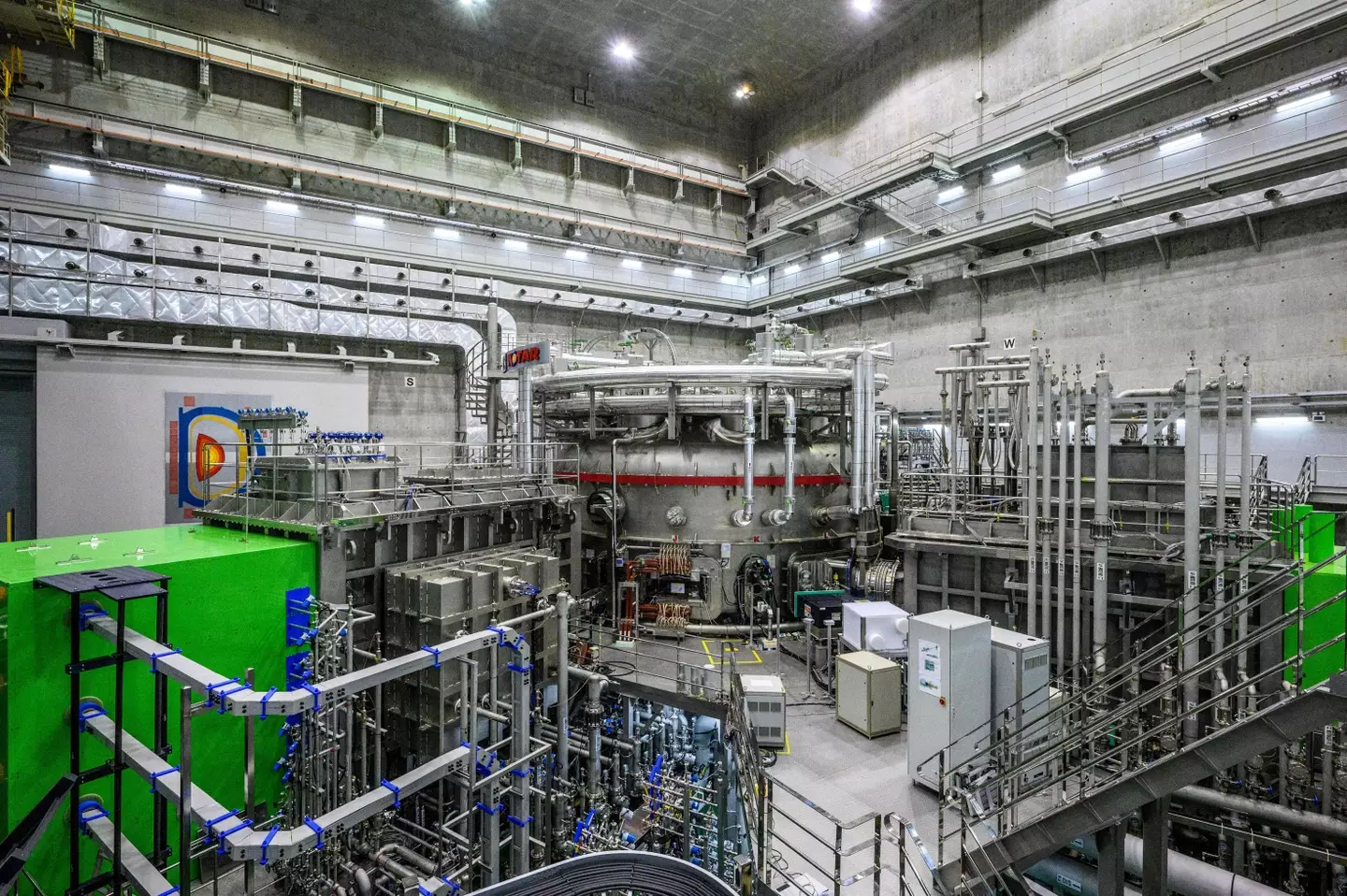
There's an artificial reactor that could pave the way for sustainable energy and a greener future. And recently, it hit a record time for reaching temperatures ten million times hotter than the Sun.
The doughnut-shaped Korea Superconducting Tokamak Advanced Research (or KSTAR for less of a mouthful) has now demonstrated sustained fusion temperature for nearly a minute and successfully contained extremely hot plasma for over 100 seconds.
Nuclear fusion replicates the reaction that powers the sun and other stars.
Due to its limitless power, fusion has the potential to provide sustainable, carbon-free energy.
Advert
However, achieving fusion on Earth requires temperatures far higher than those found in space.

Our planet's gravity keeps everything centred and packed together so fusion is more likely to happen. Fusion reactors, called Tokamaks, heat up hydrogen molecules to extremely high temperatures creating a plasma.
To do so requires extraordinary heat, we're talking seven times the temperature at the core of the Sun - 100 million °C (180 million °F).
Such a process has previously been challenging due to the 'unstable nature of the high temperature plasma,' said Dr. Si-Woo Yoon, director of the KSTAR Research Center.
However, recently, the research team recorded KSTAR containing its extremely hot plasma for over a total of 100 seconds. The last record time was back in 2021, when the reactor kept hot plasma for just over a minute, now a few years later it's almost doubled that.
'Despite being the first experiment run in the environment of the new tungsten divertors, thorough hardware testing and campaign preparation enabled us to achieve results surpassing those of previous KSTAR records in a short period,' said Dr. Si-Woo Yoon.

'To achieve the ultimate goal of KSTAR operation, we plan to sequentially enhance the performance of heating and current drive devices and also secure the core technologies required for long-pulse high performance plasma operations.'
The hope is that KSTAR will be able to sustain plasma temperatures of 100 million degrees for 300 seconds by 2026. This would be marked a 'critical point' in order to scale fusion operations, according to Si-Woo Yoon.
KFE president, Dr. Suk Jae Yoo added: 'This research is a green light for acquiring core technologies required for the fusion DEMO reactor.
'We will do our best to secure core technologies essential for the operation of ITER and the construction of future DEMO reactors.'
Construction of the DEMO reactor is projected to begin later this year.